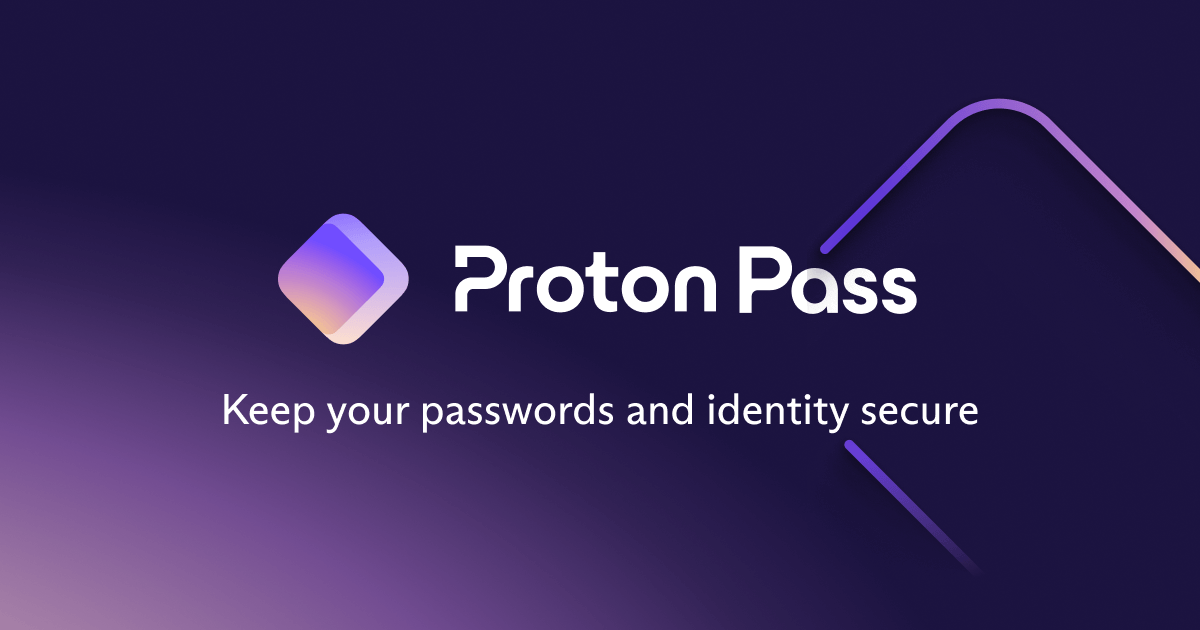- cross-posted to:
- [email protected]
- cross-posted to:
- [email protected]
I was in the beta of it, didn’t use it though as i am on 1password.
For me it’s important that i have a desktop application. I don’t want to open my fcking webbrowser anytime i need a password or want to edit some credentials.
And they simply don’t have one. I gave it as feedback and they say it’s on their roadmap. I said they should take 1passwords desktop as inspiration as it works so fcking good; I really love that floating quick search that you can summon with a keycombo.
Is it open source though?
Here you go :)
deleted by creator
deleted by creator
Thought this was about Valve’s Wine fork and was very confused 😅
deleted by creator
You shouldn’t be using that feature anyway. Keeping your passwords and 2FA in the same place means you only have 1FA.
deleted by creator
Proton is starting to loose focus in my opinion. I’ve been a costumer for 5 years only using email and I moved this year to fastmail and I couldn’t be happier. Unlimited emails alias, good apps, ability to use thunderbird without a self hosted bridge.
The promise of a encrypted email does not work if your contacts are not on proton too (for me was 100% of my contacts).
If you are really focused on privacy you would choose nextcloud for cloud for example and keypass or Bitwarden for password managers.
I would like them to focus on email client features and stop this side hustles.
Proton’s whole reason to exist is to provide privacy, not email client features.
I hear what you’re saying but Nextcloud is definitely not a viable option for reliable backups. Wayyyy too buggy to trust
I can not be, nextcloud was just an example. I have never had an issue with nextcloud backups
Certainly way too buggy if you’re selfhosting. At least that was my experience. And if you’re not, the privacy component really goes away.
This company is a love hate relationship.
They make good products, but they promise release dates over and over again, and miss them by 2+ years.
They also fuck people over by releasing apps to only their visionary memberships. Like okay. Guess my $150/month doesn’t mean shit because I’m not visionary? Glad to wait 8 months for the beta to trickle down to me…
Still waiting on the ProtonMail Android app to be remade, and ProtonDrive Windows desktop app.
Edit: wait, I need a business plan to use this? What?
Ya, I’ll stick to my $1.30 CAD per month for BitWarden over the $6 for this.
The protonmail app seams good to me on Android?
It’s missing so much that iOS has. They’ve said they are releasing a rewritten app, but keep delaying it.
For example, there’s no threaded email support on Android.
https://proton.me/blog/2022-roadmap
As discussed in the January update, Android will require more work as we are rewriting more of the application, with a big focus on performance and stability. This means some Android features you have requested for Mail are not in our immediate scope for delivery. In particular, conversation view (also known as threading view) won’t make it into the first version of the new Android app, but we hope to deliver it soon after release.
True, no threads. I didn’t notice cause for threads I usually used the website on my laptop
How.come u.r paying 150$/month? Havent you ment 150$/year?
I tried it and its pretty cool and polished, but Bitwarden is WAY better in every poseible way.
I agree with you there, KeePassXC is definitely the superior choice.
Been using Bitwarden for a few years now, but this one looks tempting. I suppose it has better UI and integrated 2FA sounds nice. Also I’m already a Proton Mail subscriber, so it could be nice addition to the ecosystem.
BitWarden has integrated 2FA.
Any strong reasons to switch from KeePassXC?
I would say the sync feature as it may be more convenient on iOS etc
Probably not.
KeepassXC with Syncthing is the best option I’ve found.
Probably none, if you’re fine with KeePass. Personally I don’t want to use anything that’s hosted on someone else’s server. It’s a bit more inconvenient to use the local files of KeePass only, but I’d rather feel a bit safer with that, even if by all account BitWarden/Proton Pass would be fine.
I’m a faithful Bitwarden user. No need to switch
I’m pretty sure the app is great, but I am not a fan of putting all my eggs in the same basket. I will keep using Bitwarden for the time being.
Same here. I’m fine using Proton for my mail & drive, but I also like keeping my passwords separate in bitwarden, and my 2fa separate in my raivo. A healthy separation is good.
I advice anyone against switching for now, especially if you’re using KeePass or Bitwarden. Proton Pass has just been released, meaning it is not audited and it’s immature. I would not trust it with my passwords just yet.
Awesome! How does it compare to BitWarden?
It doesn’t have feature parity (yet?). If you’re happy with Bitwarden, I’d stick with it.


















